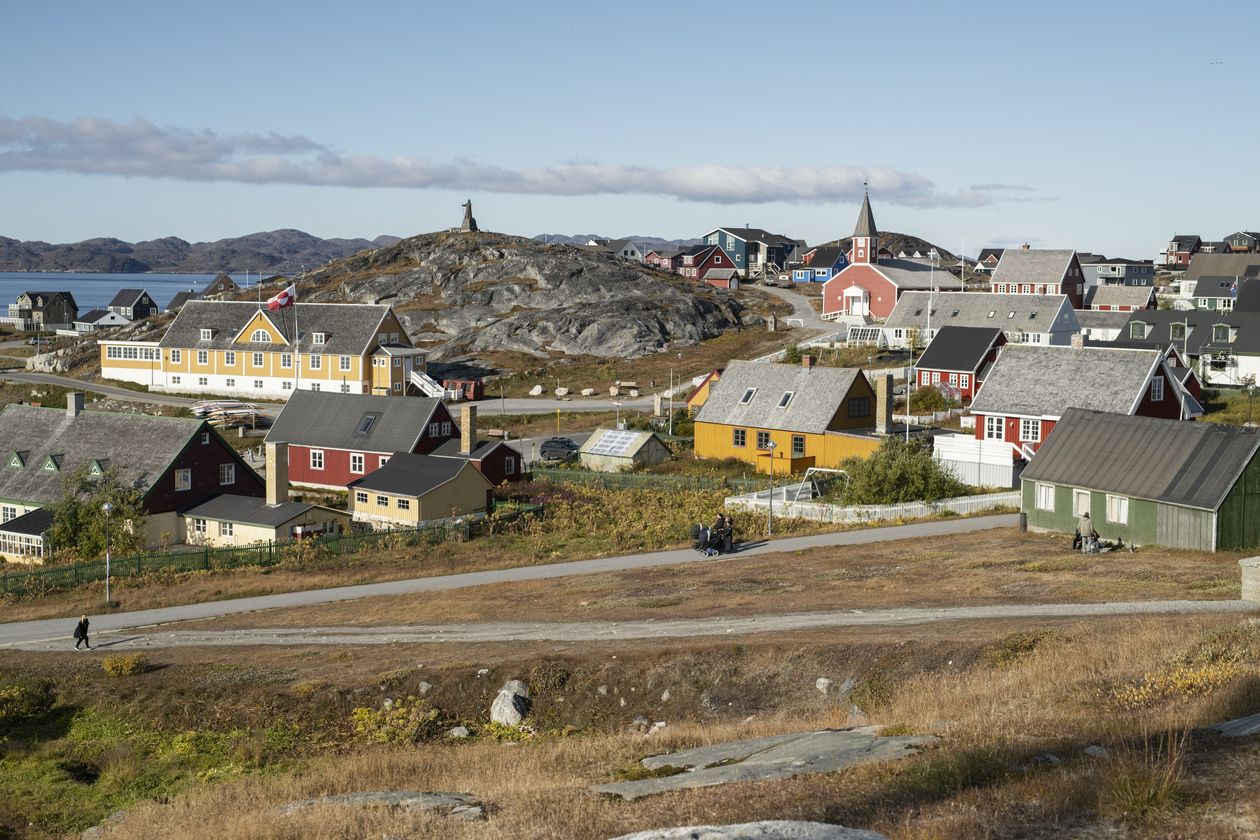By
When it was first revealed in August that President Trump wanted to purchase Greenland from Denmark, many Danes initially assumed it was a joke. It was not until President Trump postponed a visit to Copenhagen — citing the Danish government’s lack of interest in selling the autonomous island — that many Danes realized he was serious about this idea.
The U.S. president may have been serious about it, but the whole notion was “absurd,” as Danish Prime Minister Mette Frederiksen put it.
The awkward episode that has strained Danish-U.S. relations in recent months surfaced once again on Wednesday, when House investigators releaseGREENLANDd a transcript of the closed-door testimony of the acting ambassador to Ukraine, William B. Taylor Jr. As part of the ongoing impeachment inquiry, Taylor was supposed to testify on questions surrounding Trump’s decision to withhold military aid to Ukraine this summer.
But from a Danish perspective, the testimony took its perhaps most stunning turn on page 132. Buried within the document, the transcript quotes Intelligence Committee Chairman Adam B. Schiff (D-Calif.) asking about Taylor’s prior claim that several senior administration officials tried to arrange a meeting with Trump in August to persuade him to lift the hold on military aid to Ukraine, but that the meeting did not happen.
“What do you deduce from that, that our ally is fighting with the Russians, but all of these agencies that support this can’t get a meeting with the president to discuss it?” Schiff asked.
In his response, Taylor cited scheduling issues — before he added: “I think this was also about the time of the Greenland question, about purchasing Greenland, which took up a lot of energy in the [National Security Council].”
Danes reacted “with a combination of astonishment, worry and laughter” to the claims surrounding Trump’s Greenland moves, said Jon Rahbek-Clemmensen, an associate professor at the Institute for Military Operations at the Royal Danish Defense College. “It almost seems surreal.”
But Rahbek-Clemmensen cautioned that the testimony — which, from Denmark’s perspective, appears to prove how serious the Trump administration was about purchasing Greenland — may deepen concerns that the White House is attempting to drive a wedge between Denmark and Greenland.
In late October, a U.S. delegation with State Department counselor T. Ulrich Brechbuhl traveled to Greenland for high-level talks with government officials. He was accompanied by Pentagon and National Security Council officials, according to the Wall Street Journal, which first broke the story in August of Trump’s desire to purchase Greenland.
|
Denmark’s foreign minister was also reportedly present during the talks. But some Danish politicians worry that the Trump administration may not be honest about its real intentions behind forging closer U.S. ties with Greenland.
“Every time I meet with the U.S. Embassy’s officials, their number one questions will always be about Greenland,” said Michael Aastrup Jensen, a member of the Danish Parliament with the center-right Venstre party.
Aastrup Jensen noted that the Trump administration continued to try to “put Greenland into the U.S. hemisphere of political interest,” even though it has culturally and politically long been tied to Europe.
“There’s nothing wrong in that per se, as long as it doesn’t drive a wedge between the Greenlandic people and the Danish people,” he said.
Despite having fewer than 60,000 residents — spread out across 850,000 square miles that are geographically part of North America — Greenland was strategically significant during the Cold War because of its location between the Arctic and the Atlantic oceans.
In the decades since, Greenland has again become a playing field for major global powers, which now also include China.
As climate change is melting Greenland’s ice, hopes for the discovery of new offshore oil resources are on the rise. China in particular has attempted to make inroads on the gigantic island.
To secure resources, China and Russia have also stepped up their military activities in the region. The United States has followed suit, and the failed purchase of Greenland is only the latest example.
But unlike other measures that have been mostly welcomed by host countries — such as increasing troops in Northern Europe — Trump’s purchase attempt has risked interfering with a delicate political situation.
Many Greenlanders have long sought complete independence from Denmark and found Trump’s idea of a purchase “very offensive,” said Rahbek-Clemmensen.
But achieving independence will be possible only if Greenland is able to attract substantially more foreign investment — either from China, the United States or elsewhere. This has helped to preserve U.S. influence in Greenland, even in the wake of Trump’s foreign policy maneuvering.
Meanwhile, the United States’ public wooing of Greenland has reawakened a largely cooled-off enthusiasm for the autonomous territory within Denmark.
“The whole idea of President Trump wanting to buy Greenland was a wake-up call to all of us here in the Danish Parliament” — just not in the way Trump would have liked, Aastrup Jensen said. Instead, Danish political parties have taken a new interest in helping Greenland pursue a more promising path within the kingdom of Denmark that would allow it to “steer clear of all the superpowers’ interests.”




